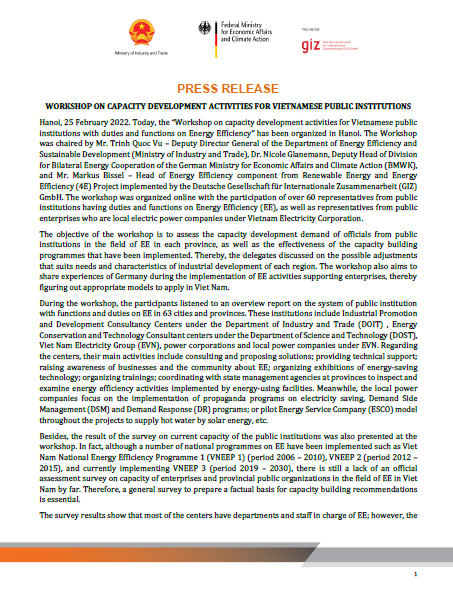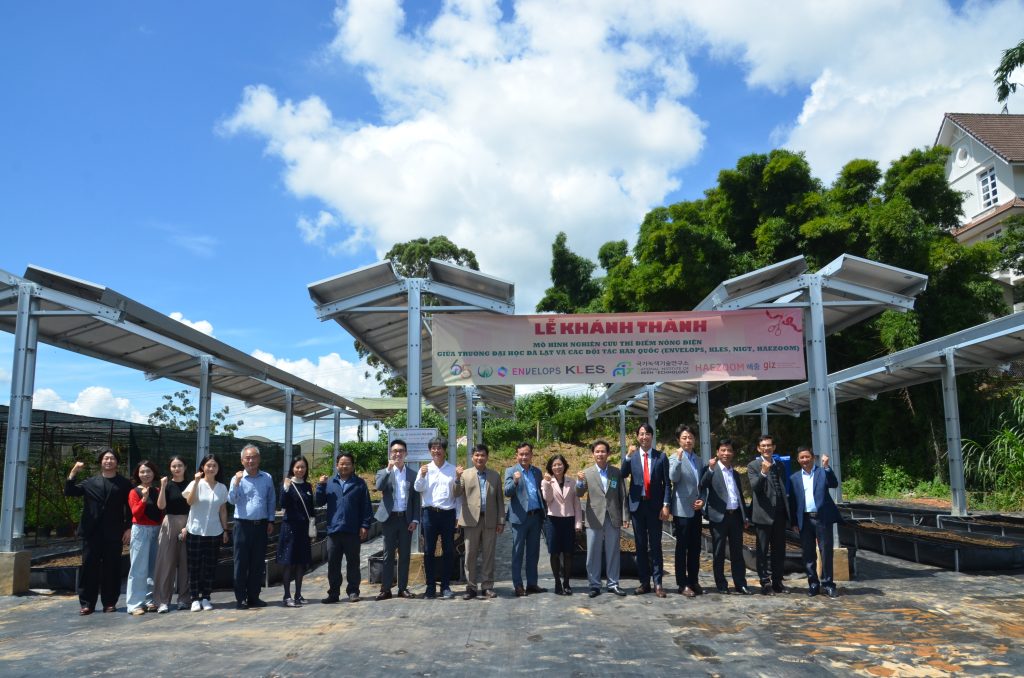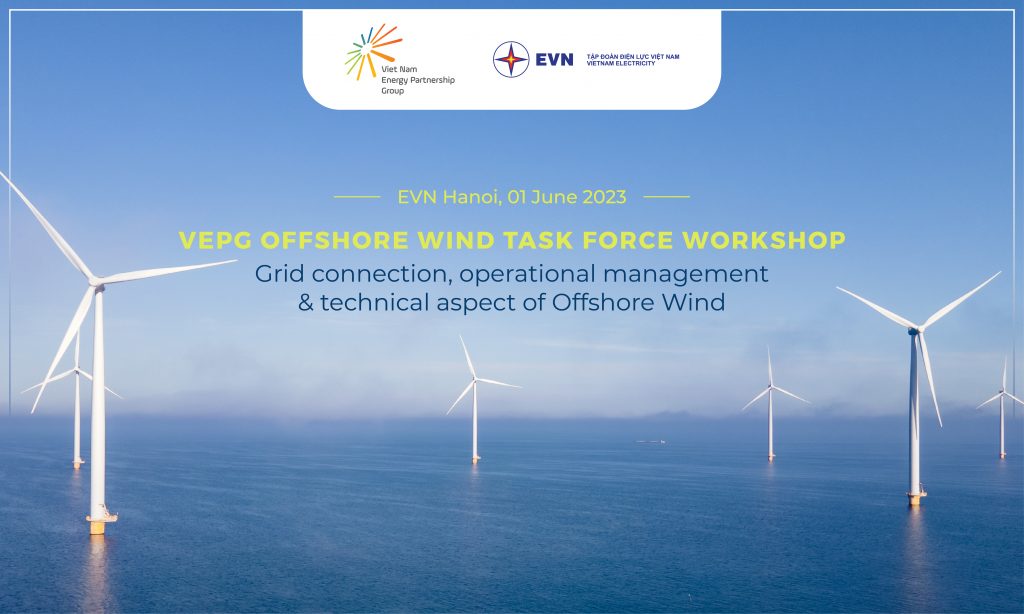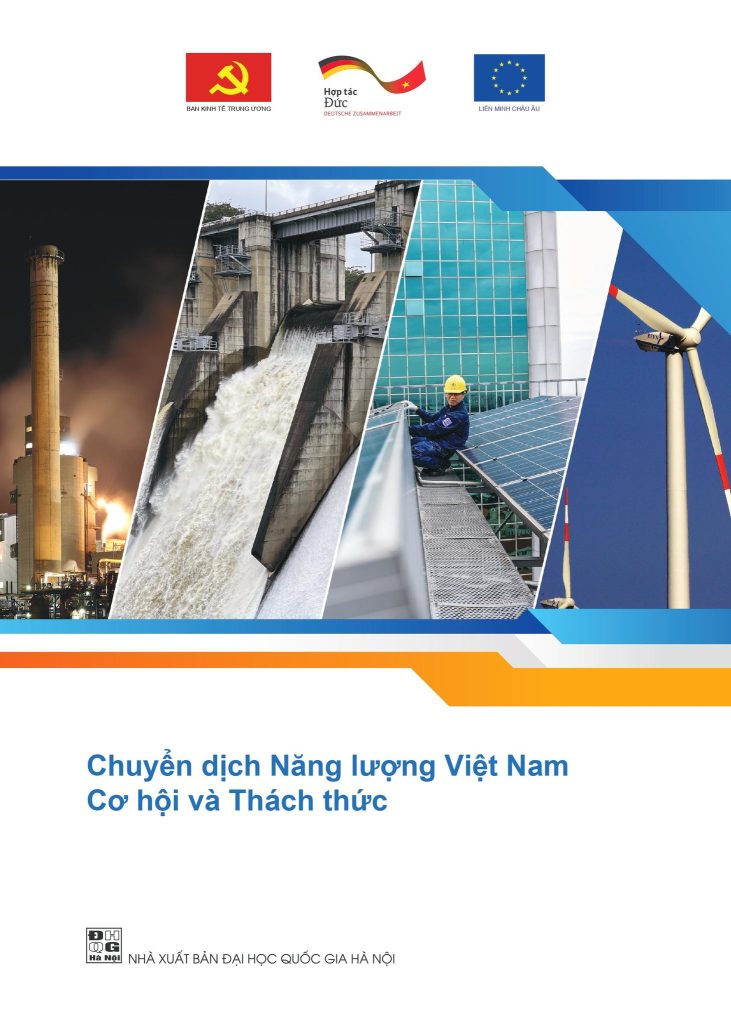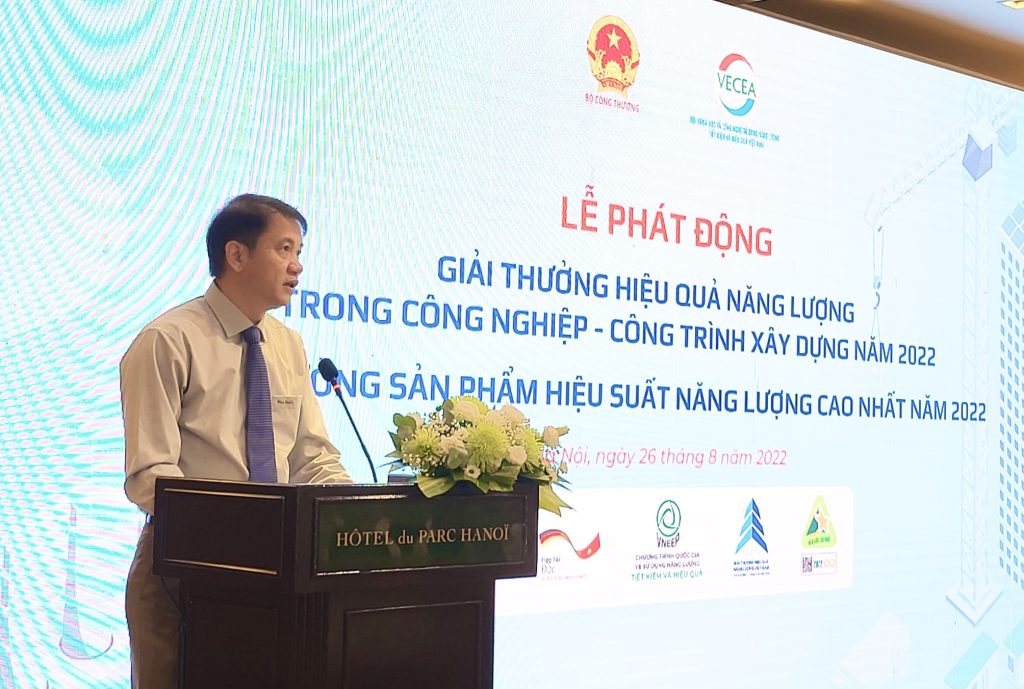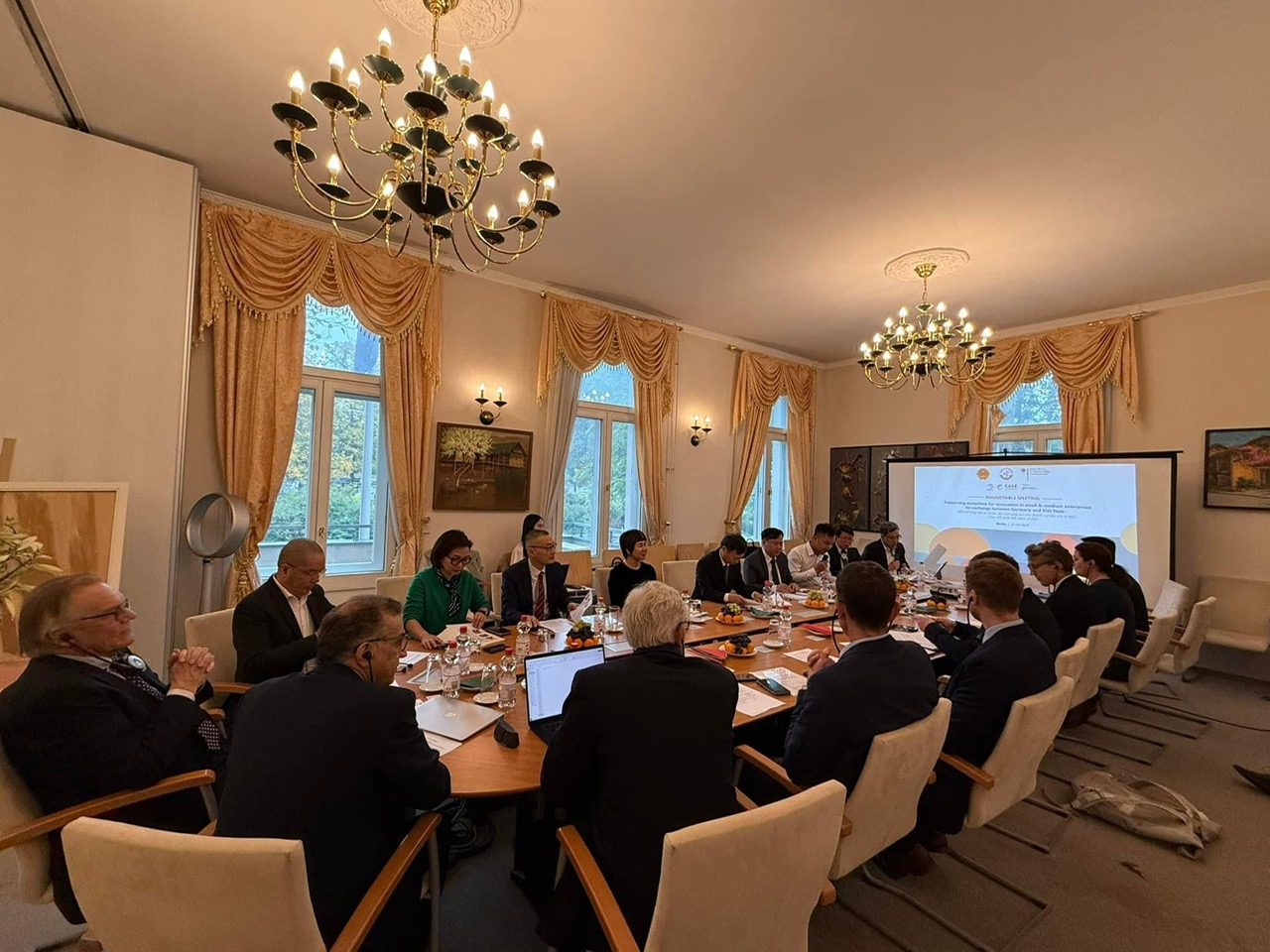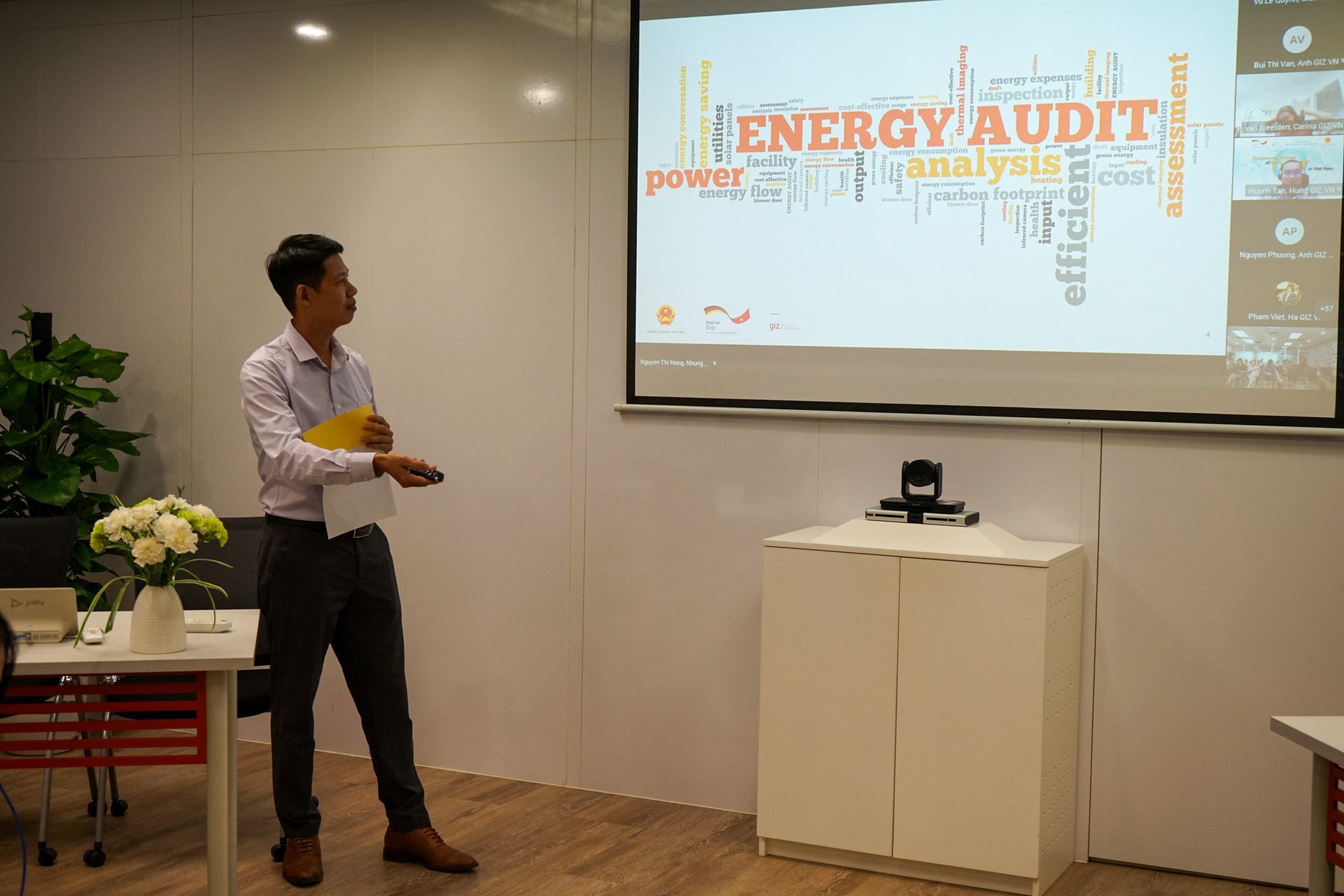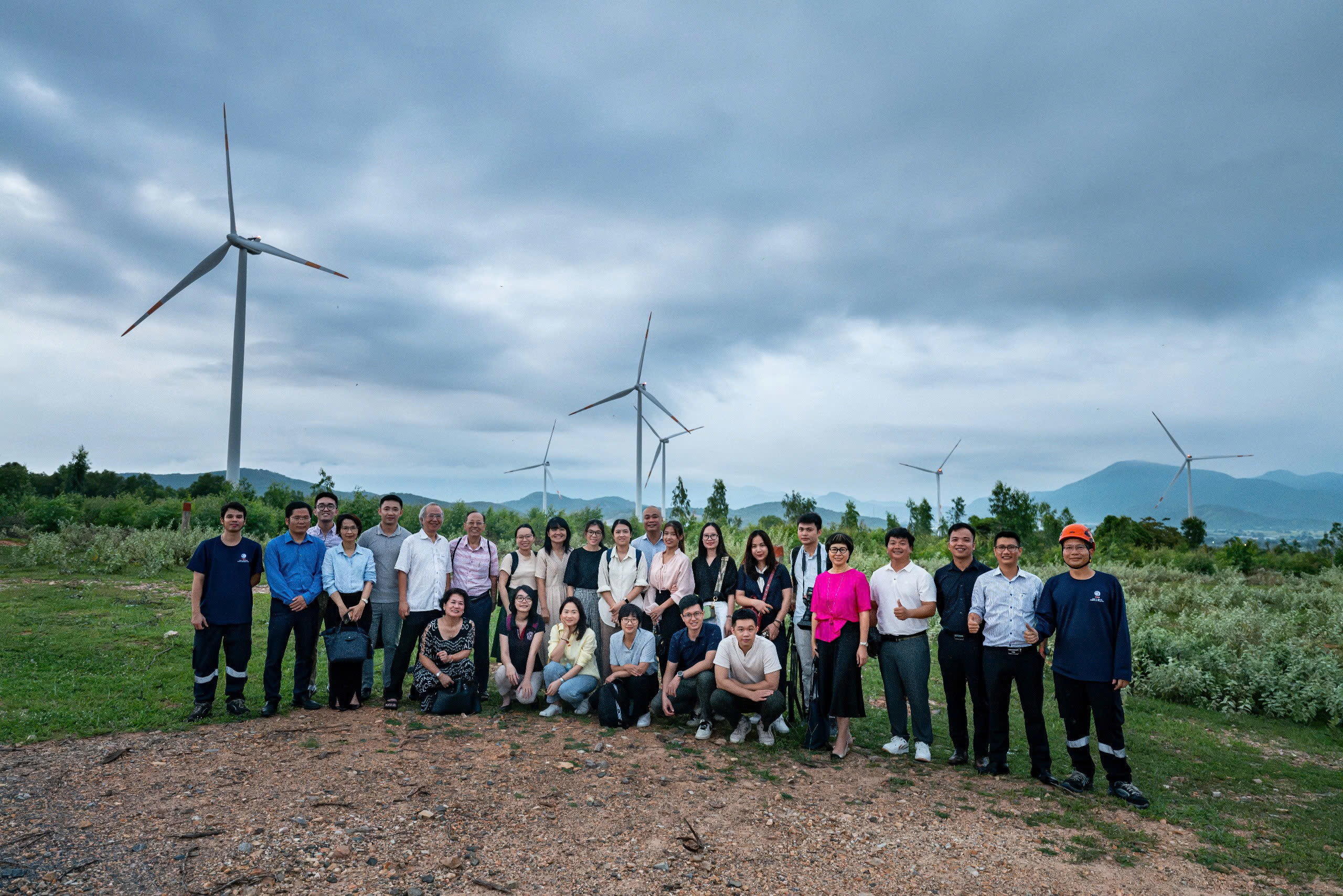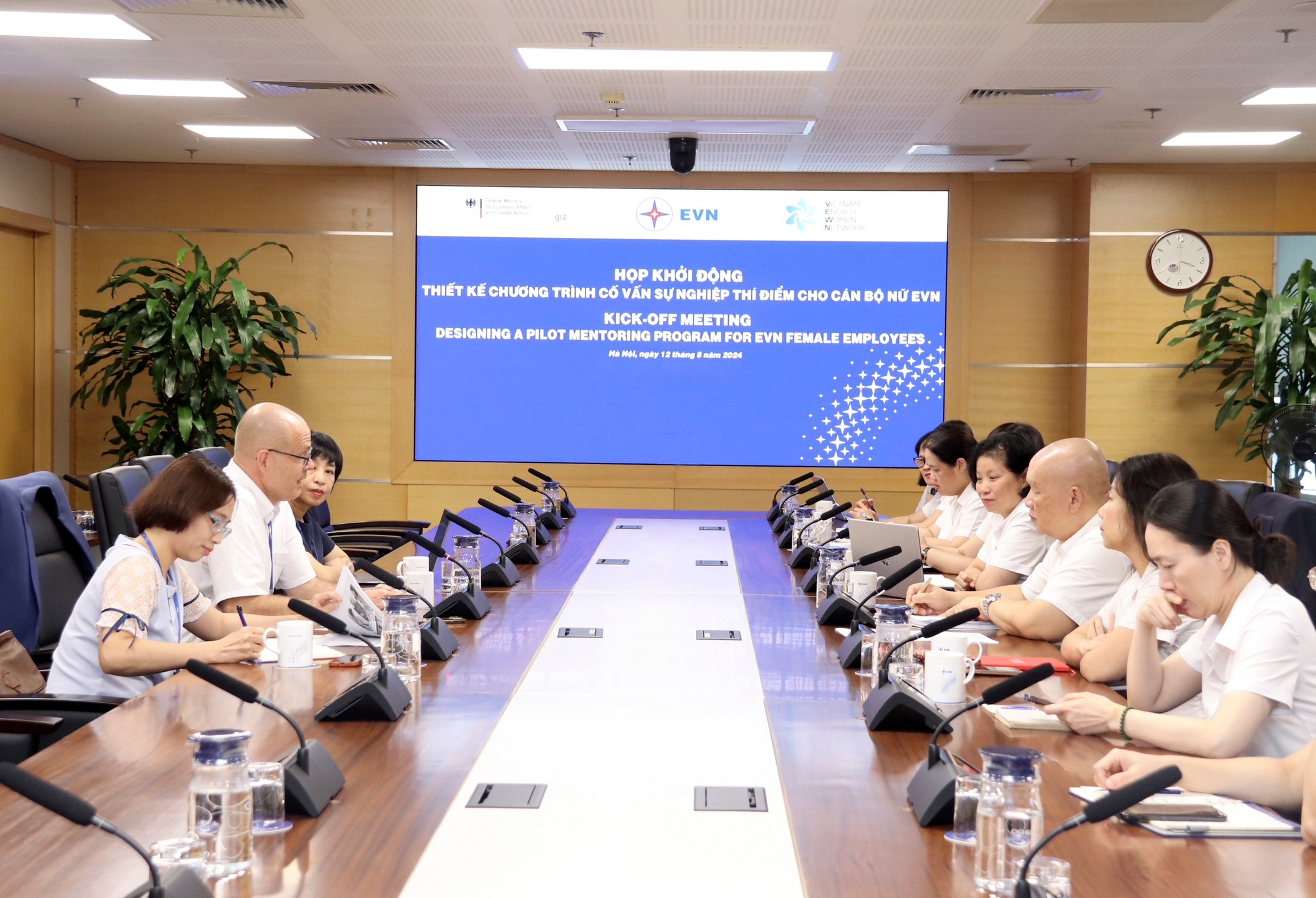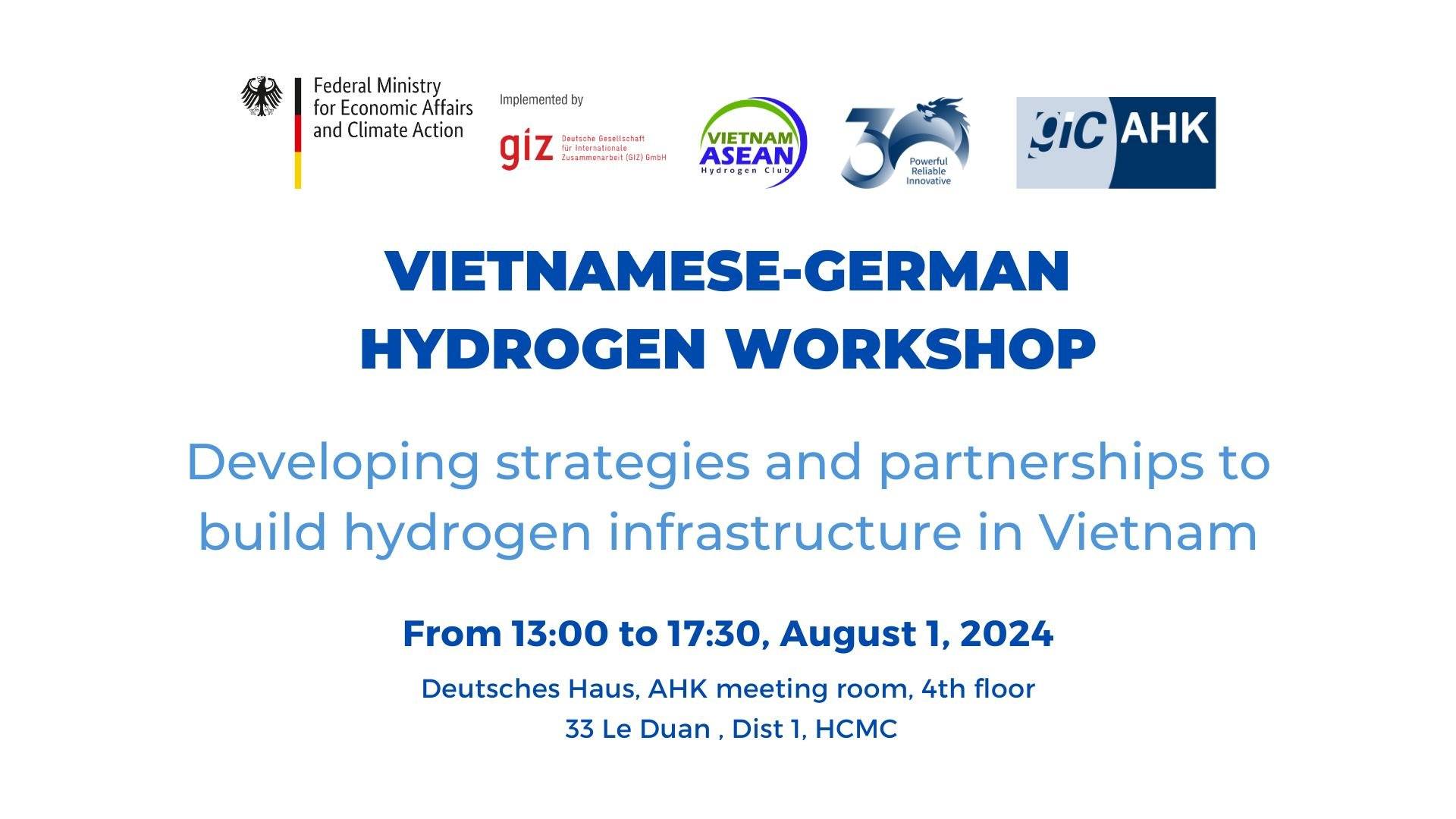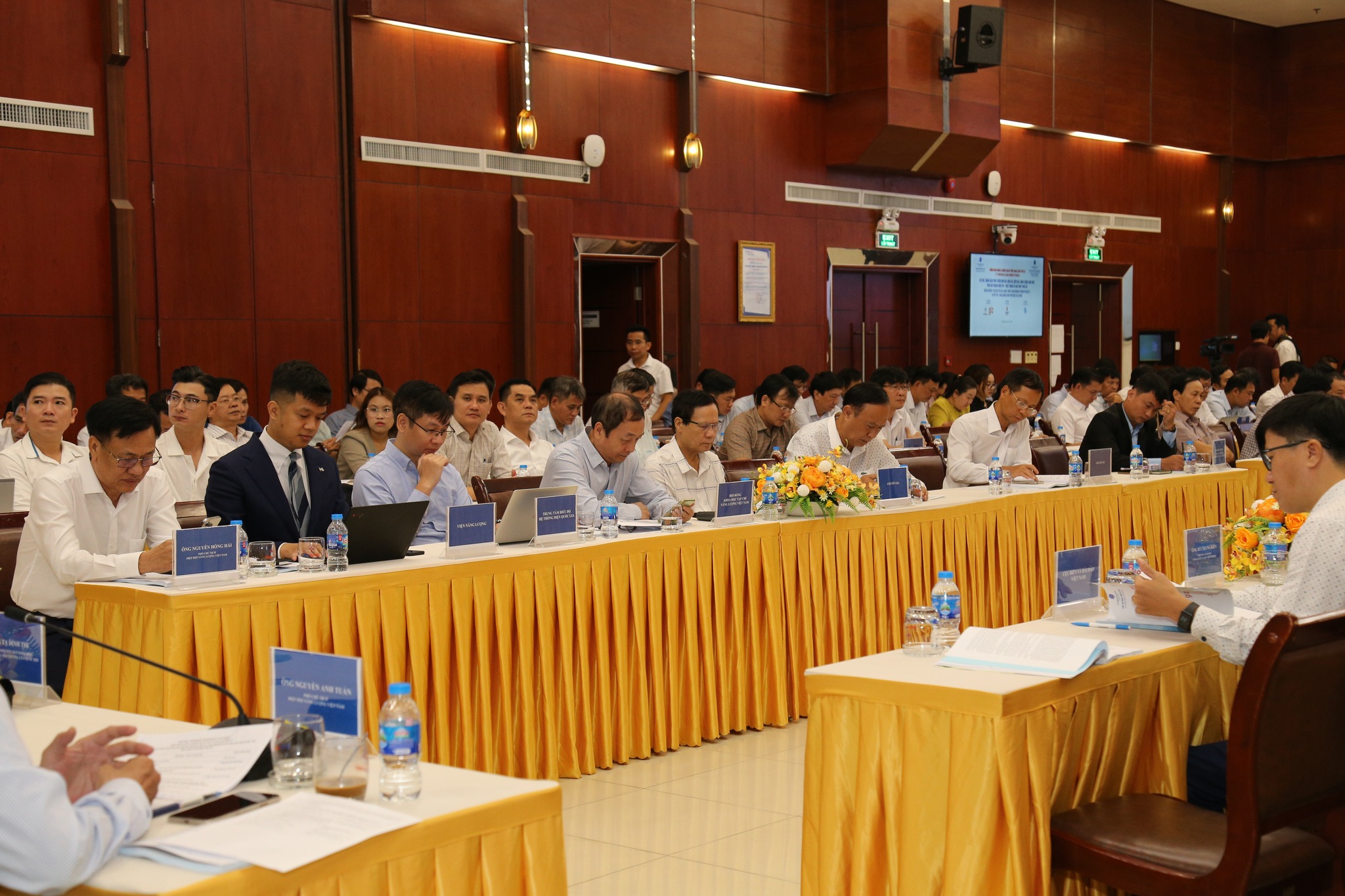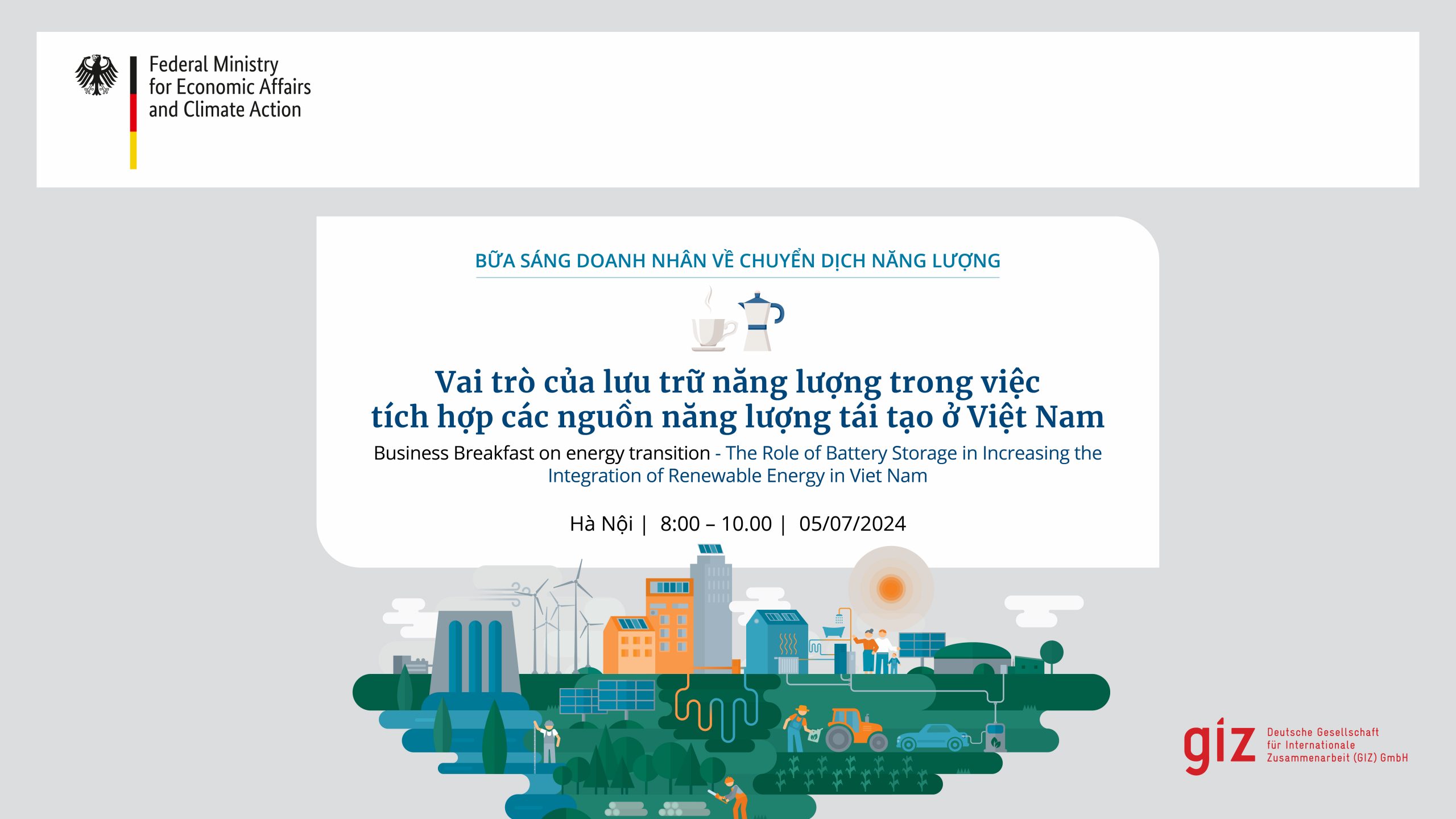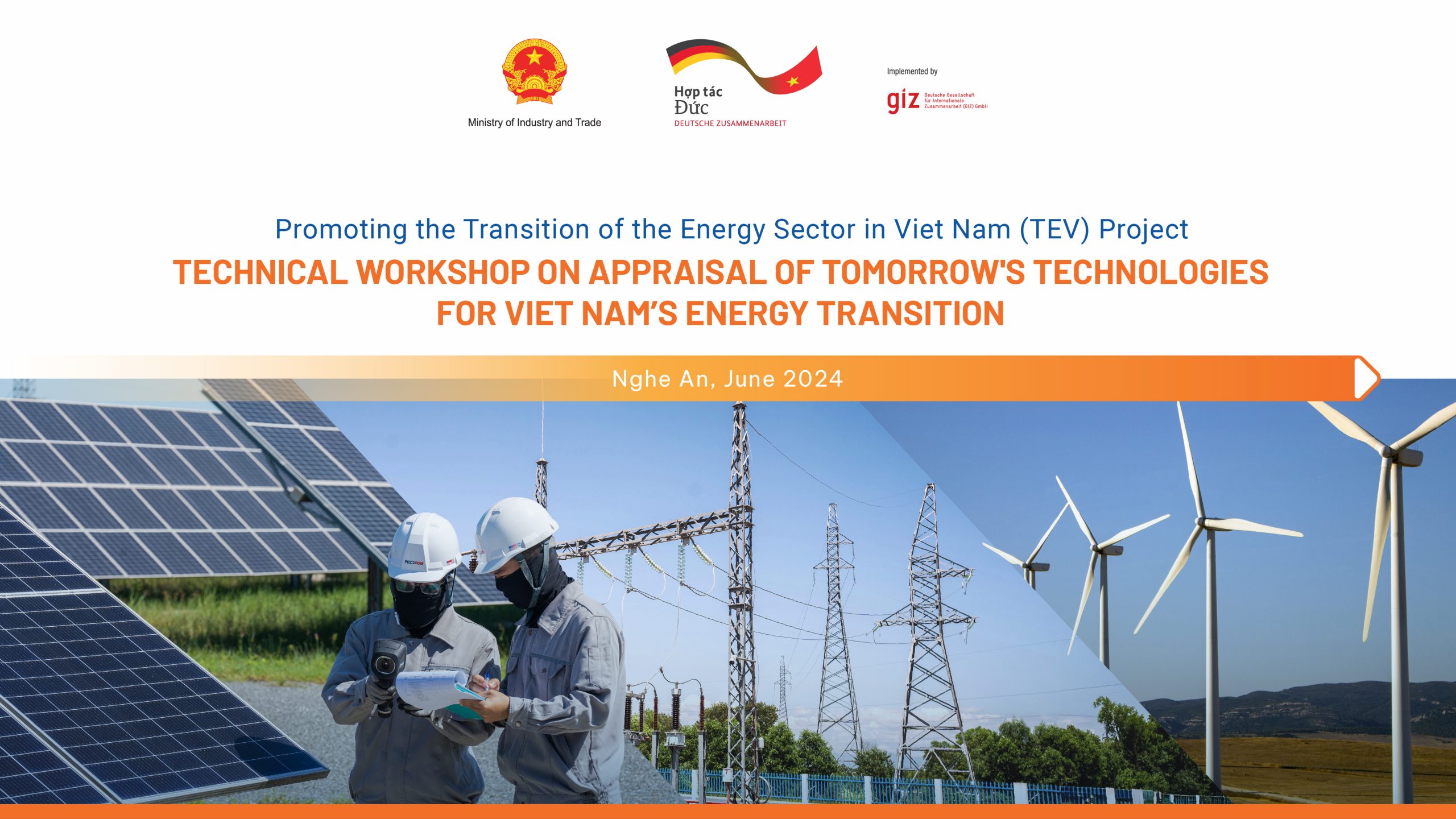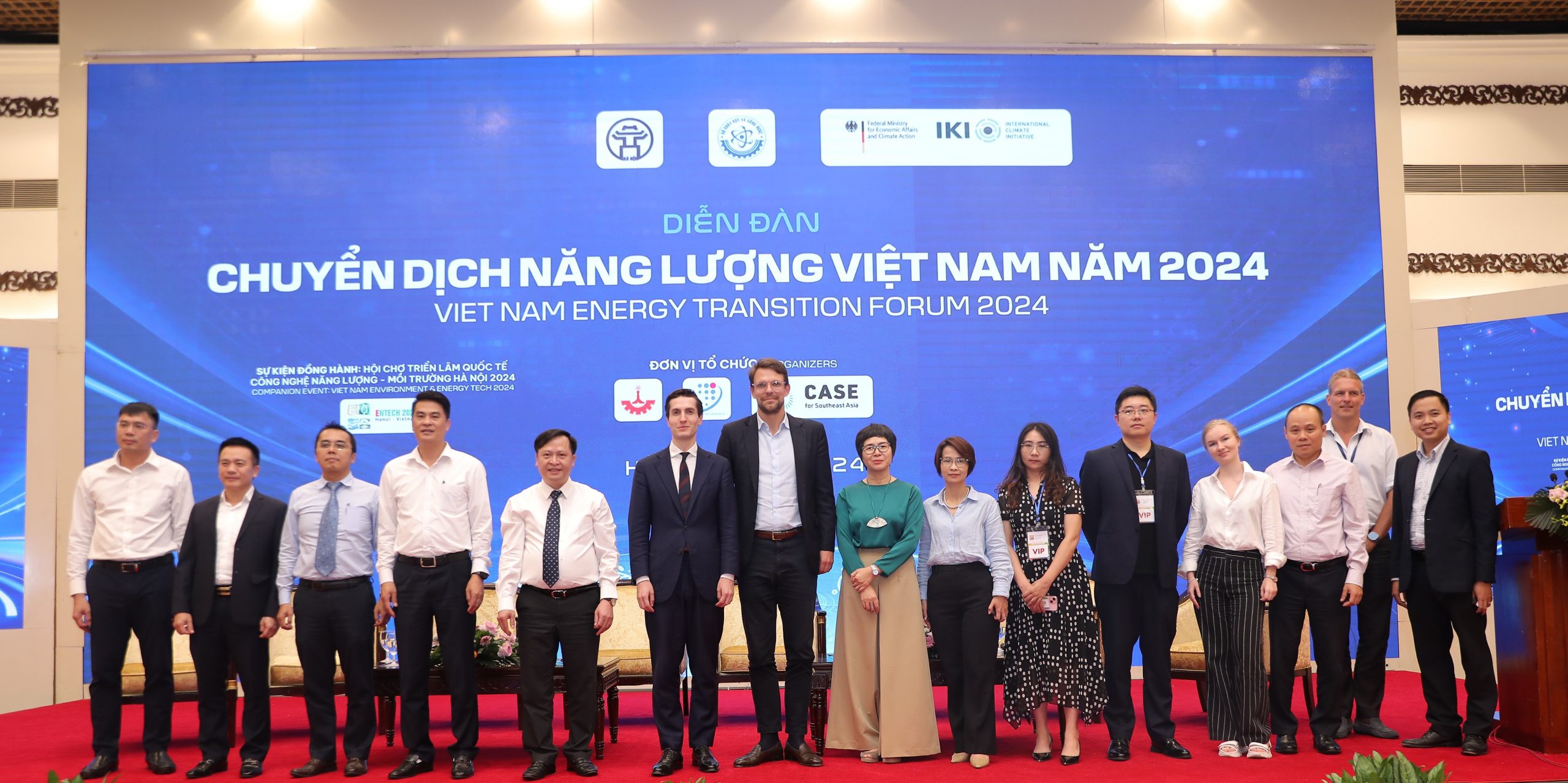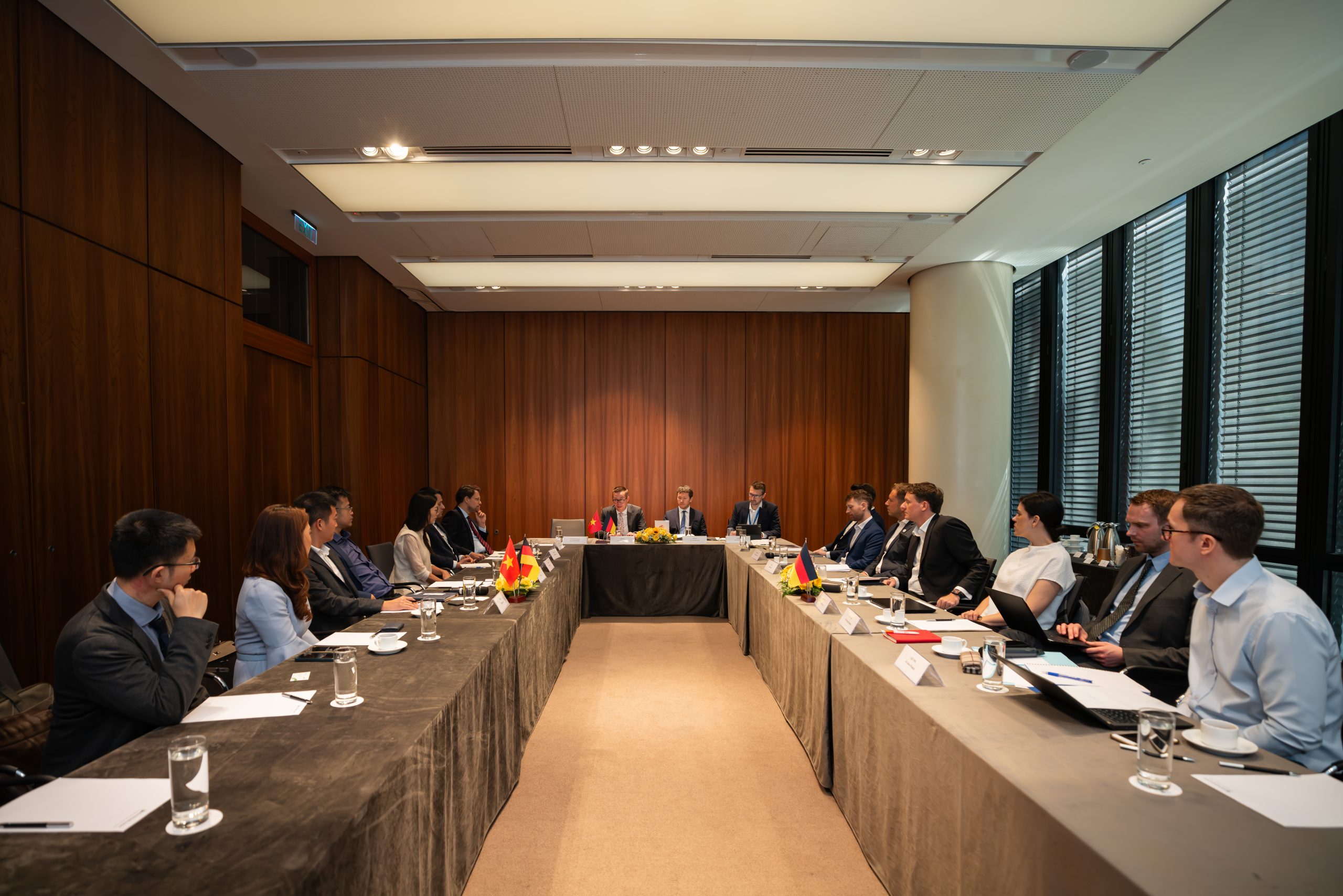Hanoi, 25 February 2022. Today, the “Workshop on capacity development activities for Vietnamese public institutions with duties and functions on Energy Efficiency” has been organized in Hanoi. The Workshop was chaired by Mr. Trinh Quoc Vu – Deputy Director General of the Department of Energy Efficiency and Sustainable Development (Ministry of Industry and Trade), Dr. Nicole Glanemann, Deputy Head of Division for Bilateral Energy Cooperation of the German Ministry for Economic Affairs and Climate Action (BMWK), and Mr. Markus Bissel – Head of Energy Efficiency component from Renewable Energy and Energy Efficiency (4E) Project implemented by the Deutsche Gesellschaft für Internationale Zusammenarbeit (GIZ) GmbH. The workshop was organized online with the participation of over 60 representatives from public institutions having duties and functions on Energy Efficiency (EE), as well as representatives from public enterprises who are local electric power companies under Vietnam Electricity Corporation.
The objective of the workshop is to assess the capacity development demand of officials from public institutions in the field of EE in each province, as well as the effectiveness of the capacity building programmes that have been implemented. Thereby, the delegates discussed on the possible adjustments that suits needs and characteristics of industrial development of each region. The workshop also aims to share experiences of Germany during the implementation of EE activities supporting enterprises, thereby figuring out appropriate models to apply in Viet Nam.
During the workshop, the participants listened to an overview report on the system of public institution with functions and duties on EE in 63 cities and provinces. These institutions include Industrial Promotion and Development Consultancy Centers under the Department of Industry and Trade (DOIT) , Energy Conservation and Technology Consultant centers under the Department of Science and Technology (DOST), Viet Nam Electricity Group (EVN), power corporations and local power companies under EVN. Regarding the centers, their main activities include consulting and proposing solutions; providing technical support; raising awareness of businesses and the community about EE; organizing exhibitions of energy-saving technology; organizing trainings; coordinating with state management agencies at provinces to inspect and examine energy efficiency activities implemented by energy-using facilities. Meanwhile, the local power companies focus on the implementation of propaganda programs on electricity saving, Demand Side Management (DSM) and Demand Response (DR) programs; or pilot Energy Service Company (ESCO) model throughout the projects to supply hot water by solar energy, etc.
Besides, the result of the survey on current capacity of the public institutions was also presented at the workshop. In fact, although a number of national programmes on EE have been implemented such as Viet Nam National Energy Efficiency Programme 1 (VNEEP 1) (period 2006 – 2010), VNEEP 2 (period 2012 – 2015), and currently implementing VNEEP 3 (period 2019 – 2030), there is still a lack of an official assessment survey on capacity of enterprises and provincial public organizations in the field of EE in Viet Nam by far. Therefore, a general survey to prepare a factual basis for capacity building recommendations is essential.
The survey results show that most of the centers have departments and staff in charge of EE; however, the facilities and specialized measuring equipment for EE activities are still limited in terms of quantity and type. The number of trained energy auditors in the centers is still limited. The budget for EE activities deployed at the centers are mostly from the state capital or sponsored, the revenue from consulting activities for enterprises accounts for a low proportion only. The investment activities on EE are almost absent.
At provincial power companies, the implementation of EE activities also faces many difficulties. The officials work concurrently to monitor EE with narrow experience in the field, which affects their work quality. Despite several activities in many forms to encourage electricity saving among the community, many electricity consumers have not changed their electricity usage habits, or have not paid attention to electricity saving. Besides, the fact that promotional activities are usually carried out in the second and third quarter of every year under extremely hot weather when the electricity demand increases also affects the load adjustment campaigns.
Also at the workshop, the Berlin Energy Agency (BEA), Energy and Environmental Technology Association (NEU), the municipal utility of Leipzig city and the Electrical Equipment Business Association ZVEI also shared experiences in capacity development through the implementation of activities supporting EE for business in the cities. According to Mr. Michael Geißler – Chief Executive Officer of BEA, to successfully execute EE activities, it is necessary for organizations and enterprises to have a reliable legal framework for implementation, standardized procedures and contract processes, as well as potential mediators to manage and handle conflict situations.
Mr. Mirko Dietrich – Chief Office of the Energy and Environmental Technology Association (NEU) also shared his experience in successfully implementing projects and services, such as installing 10,000 smart meters in Leipzig city, organizing the Smart Infrastructure Hub Initiative to commercialize the technology research in the fields of energy and environment, supporting regional development strategies for mobility and climate adaption. It is known that the Association gathers 70 members who are large, medium and small enterprises, research institutes and universities, as well as public organizations to cooperate in carrying out activities on energy efficiency.
Based on the survey results and the capacity assessment of the officials while considering the tasks, budget and industrial development characteristics of each locality, as well as the specific needs of each public institutions, the delegates discussed and exchanged ideas to build an appropriate and feasible capacity development program in Viet Nam. The activities were proposed to implement under the model of bilateral cooperation (between Viet Nam and Germany) in order to exchange experiences and supports as per the right needs at the right time. The delegates also listened to more proposals from German public organizations on the possibility of cooperation and development between the two countries, as well as suggestions on capacity building activities suitable to the situation in Viet Nam.
Speaking at the workshop, Mr. Trinh Quoc Vu, Deputy Director General of the Department of Energy Efficiency and Sustainable Development said: “Provincial public institutions and enterprises play a very important role and are the main resource for VNEEP3 implementation, ensuring successfully achieving the goal of saving 8-10% of the total national energy consumption in the period 2019-2020. The consultation workshop is an opportunity for delegates to propose detailed plans and content on developing required resources and working skills, as well as to exchange experiences and opportunities for cooperation between the stakeholders.”
Mr. Markus Bissel, Head of Energy Efficiency component (4E Project, GIZ) shared: “This workshop is special because this is the first time that GIZ Vietnam is seeking to closely and on such a broad scale cooperate with public institutions in the field of energy efficiency. Public institutions have always been a successful instrument internationally to implement strategic visions and in particular to promote energy saving activities and investments.”



